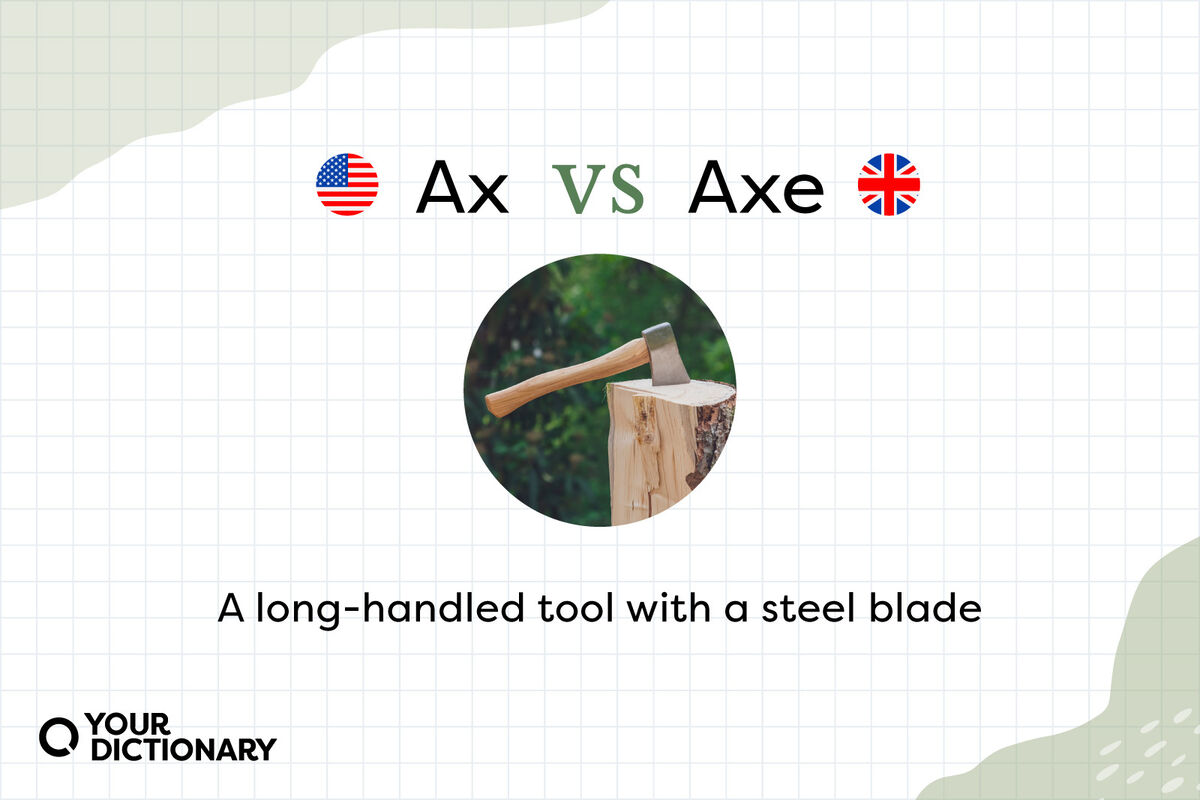
You may have seen different spellings of ax and axe; they are simply two different spellings for the same long-handled tool. Which you use depends on where you live and which style guidelines you adhere to.
Ax and Axe: Two Spellings, One Tool
Simply, axe is the most common spelling of this word. According to Garner’s Modern English Usage, axe is dominant in print sources. However, when it comes down to it, there is a slight preference for ax in American English while axe is the standard British spelling.
-
ax (American English) - a long-handled tool with a steel blade
-
axe (British English) - a long-handled tool with a steel blade
Examples of Ax and Axe in Sentences
The noun form of ax or axe refers to a tool with a wooden handle and steel blade used for chopping wood. As a verb, it refers to the act of using an ax(e) on something or to end, cancel, or dismiss something or someone.
-
My husband is chopping wood with his axe. (noun)
-
He got the ax, and they escorted him out of the office. (verb)
-
The team axed the old plan in favor of a better one. (verb)
-
I took an ax to my paper and wound up changing the whole thing. (noun)
Expressions That Use Ax and Axe
Ax and axe are also featured in common expressions and idioms such as:
-
an ax/axe to grind - a complaint that you want to make known; a personal motivation or agenda
-
take an ax/axe to something - to destroy or attempt to destroy something; heavily revise something
-
get the ax/axe - to be fired or cast out
How the Two Spellings Came About
Axe is the original spelling and common in both British and American English. However, while axe is the only standard spelling in British English, American English uses both with a slight preference for ax in writing style guides. For example, the AP Stylebook, the Chicago Manual of Style and the Oxford English Dictionary list ax as the preferred spelling, while Garner’s Modern English Usage advocates for axe. Whichever spelling you use, consistency is key!
Choose the Correct Spelling Every Time
Ax and axe are not the only examples of words that have more than one correct spelling. More often than not, these differences come down to American vs. British English. Explore the differences between blond and blonde or disc and disk to see how one letter at the end of a word can be important.